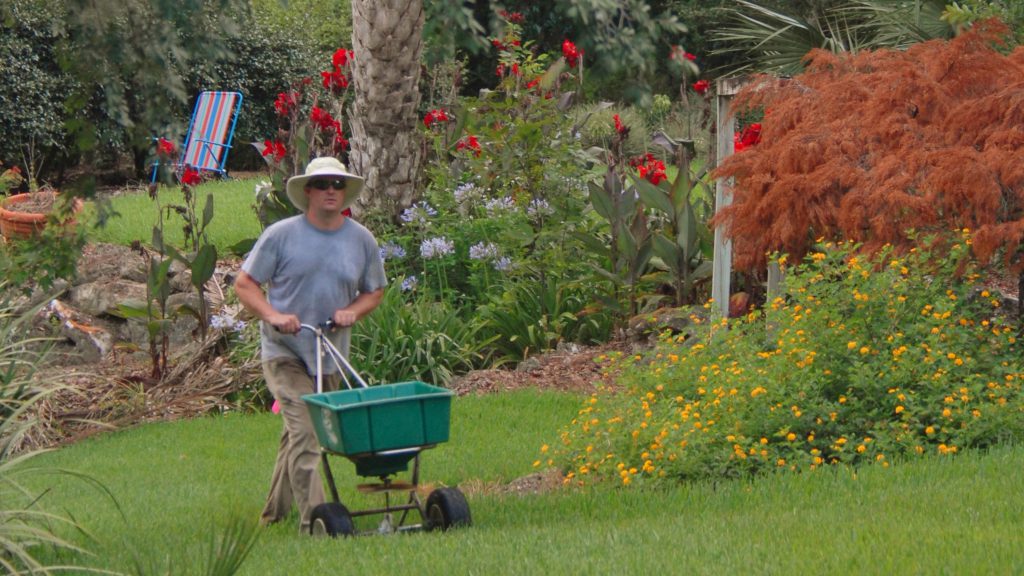Out of the Frying-Pan, Into the Fire
Have you ever heard the phrase, “Out of the frying pan and into the fire?” Although originating from Aesop’s fables, I immediately think of the chapter in Tolkien’s The Hobbit. In the chapter Bilbo Baggins, Gandalf, and the dwarves escape the goblins to find themselves trapped by Wargs. This idiom essentially means escaping one bad situation and getting into an equally or more difficult situation, or going from bad to worse.
With the arrival of May, many of us spend our weekends and evenings tending our gardens. In fact, after many of you read this article and finish your morning coffee, you will wander outside to work in your garden. As we spend time in our gardens, there are many management decisions where we inadvertently end up out of the frying pan and into the fire.

Garden Issues
Many common issues of our gardens relate to pest management, irrigation, and fertilization. Periodically gardeners apply insecticides improperly to manage landscape pests. If plants seem “sad”, we may end up watering or fertilizing them. Many of these reactions have good intentions, but lead from bad to worse problems.
Pesticides
Following integrated pest management (IPM) strategies is our best pest management system. Controlling pests starts with scouting and properly managing garden plants. If those methods do not work, we try mechanical, then biological, and if all else fails, chemical controls. Many times chemical controls are the first management strategy. Unfortunately, without properly rotating pesticides, identifying the pest, or following the label’s directions, pesticides lose their effectiveness and lead to a pesticide dependence. So, if you notice pests in your landscape, you should properly identify the pest and learn about the pest’s management strategies. A great publication for homeowners is the Ask IFAS publication: Natural Products for Managing Landscape and Garden Pests in Florida.
Irrigation
Irrigation is a wonderful tool if used properly. Unfortunately, excessive watering is common. Many landscape issues reported to our office relate to overwatering. Overwatering leads to higher water bills, increased nutrient leaching, increased weed pressure, fungus development, poor root development, etc. Irrigation is an excellent tool to provide water to our landscapes when rainfall is not sufficient. We recommend turning off your irrigation system unless plants show signs of drought stress. Proper watering saves you money and improves your landscape quality. Check out the publication: Managing Landscape Irrigation to Avoid Soil and Nutrient Losses
Fertilizer
Fertilizer becomes a common strategy to improve plant quality when plants seem stressed. Although we may see a quick response to the fertilizer’s nutrients, improper use leads to significantly worse effects. Excessive plant growth, as result from excess nutrients, invites more pests. Too much fertilizer could burn plant roots, decrease nutrient uptake efficiency, and, most importantly, contribute to water pollution. Therefore, performing regular soil tests allows us to understand our soil’s conditions and make informed nutrient management decisions following UF/IFAS Extension recommendations.

Solutions with UF/IFAS Extension Recommendations
Consider your maintenance strategies as you tend your garden this season. No matter what you do in your landscape, if you are unsure, reach out to UF/IFAS Extension. By following UF/IFAS Extension’s science-based recommendations, you will no longer end up out of the landscape frying pan and into the fire.
MORE BLOGS!!!
Interested in more Blogs from Dr. Taylor Clem? Check out his blogpage
Also check out our…
 1
1
